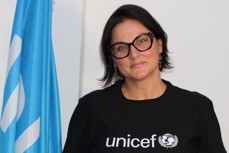
“The Gambia’s decades of investment in equal rights and opportunities for girls has put the country on a higher pedestal for growth and development. Today the country has so much to be proud of; there are now more girls in school than ever before–53% of primary school students are girls. Girls are outperforming boys in school – 53% of the students who scored 5 credits or more in the 2023 WASSCE are girls. And fewer girls are getting married before their 18th birthday – the rate of child marriage has dropped from 46.5% in 2010 to 34.2% in 2018.
“These are important milestones that we must build on to register even greater progress for girls and help The Gambia meet the United Nations Sustainable Development Goals and the aspirations of The Gambia Green Recovery-focused National Development Plan 2023-2027.
“In communities, school and civic spaces, girls are taking stronger leadership roles, they are innovating and mobilizing to support girls’ rights, and developing solutions to social problems. Let us work together with the Ministry of Gender, Children and Social Welfare and other government ministries and partners to put girls at the centre of investments and programmes.
“As more girls graduate from school, we must support them to access the right skills and qualifications for the labour market and ensure they have equal opportunities in jobs. Let us ensure every girl, including those in rural communities, has equal access to the services they need, including digital technology, to learn and explore opportunities for growth and development. Let us ensure girls are involved in decision-making processes, especially in decisions that affect them.
“Together, let us continue to support the wellbeing of girls, scale up investment in programmes and services that help protect and promote the mental health of girls, including survivors of sexual violence, cyber bullying, and harmful practices such as FGM. This is a collective responsibility, including of boys and men, policymakers, traditional leaders, school authorities, and development partners.
“The Gambia is striving to meet its commitments under the Convention on the Rights of the Child, which the country ratified in August 1990, evidenced by the enactment of the Children’s Act 2005. This and other laws, such as the Women’s Act 2010, represent strong safeguards for girls’ rights. UNICEF will continue to work with the government and other partners to strengthen the legal safeguards for girls, including the implementation of laws that protect the rights of girls.
“Today, more than ever, UNICEF as part of the UN system will continue to work with partners, including the government, girls, boys, and communities, to support the rights and well-being of girls in The Gambia. We will continue to promote platforms for girls to be informed, speak up and be actively engaged while working to accelerate investment education, health, social protection for the growth and development of all children including adolescent girls.”
Read Other Articles In Headlines





